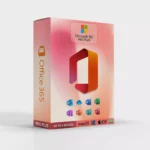A controversial Google Super Bowl advertisement featuring their Gemini AI has sparked debate over the accuracy of AI-generated content, particularly regarding a questionable statistic about global cheese consumption. The commercial, which showcases how small businesses across all 50 states utilize Gemini AI, has drawn criticism for its misleading claim about Gouda cheese’s worldwide popularity.
The advertisement’s Wisconsin segment displays Gemini generating text that states Gouda comprises “50 to 60 percent of the world’s cheese consumption.” However, cheese industry experts have quickly challenged this assertion. Andrew Novakovic, E.V. Baker Professor of Agricultural Economics Emeritus at Cornell University, disputes this claim, explaining that while Gouda may be the most commonly traded cheese variety internationally, it certainly isn’t the most widely consumed.
The controversy highlights broader concerns about AI systems‘ reliability and their potential to spread misinformation. While Gemini’s statement appears to be sourced from Cheese.com, the legitimacy of this statistic has been questioned for years, with online discussions dating back over a decade challenging its accuracy.
Novakovic further elaborates that comprehensive global data on cheese variety consumption simply doesn’t exist. He suggests that other cheese types, such as Indian Paneer or various fresh cheeses popular in South America, Africa, and parts of Asia, likely surpass Gouda in global consumption volumes.
Google’s response to the controversy came through Jerry Dischler, Google Cloud apps president, who defended the AI’s output on social media. “Not a hallucination. Gemini is grounded in the Web — and users can always check the results and references,” Dischler stated, noting that multiple websites cite the 50-60% statistic. However, this defense raises questions about the reliability of web-sourced information and the responsibility of AI systems to verify data accuracy.
The advertisement includes a disclaimer stating that Gemini serves as a “creative writing aid” and isn’t intended to be factual. Yet this caveat seems at odds with the commercial’s portrayal of a business owner using Gemini to generate website content, where accuracy would presumably be crucial for maintaining credibility with customers.
This incident emerges at a pivotal time for Google’s AI initiatives, following recent developments including the integration of AI features across their Workspace platform and accompanying subscription price increases. The timing of this controversy could impact public perception of AI reliability and its practical applications in business settings.
The situation underscores the broader challenges facing AI technology in balancing creativity with accuracy. While AI systems like Gemini can process and generate information rapidly, their outputs may still require human verification and expertise to ensure accuracy, particularly when dealing with specialized knowledge domains like global food industry statistics.
This Super Bowl ad controversy serves as a reminder of the importance of fact-checking AI-generated content, even when it comes from leading technology companies. As businesses increasingly rely on AI tools for content creation and customer communication, the need for careful validation of AI-produced information becomes increasingly critical.
The incident also raises important questions about the future of AI in advertising and business communications. As these technologies continue to evolve, finding the right balance between creative assistance and factual accuracy will be crucial for maintaining public trust and ensuring responsible AI deployment in commercial settings.
















Add Comment